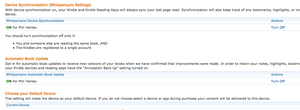I’m nearly there. Over eighteen months since my first book launched onto and unsuspecting and oblivious world, its sequel is nearly ready. My other two books are completely different stories.This prompts a range of thoughts about sequels also prompted by the discussion on Closing Time by Joseph Heller a sort of sequel to Catch-22.
Closing Time feels very different, more surreal and fantastical than Catch-22 and I have to admit that I did not find it as cynical or amusing. Comparisons can be harsh. What of other sequels some are like planned series of books. In a series there is a massive story to plot and unwind whether it’s Harry Potter (seven books) or Songs of Ice and Fire / Game of Thrones (also at 7).
I have been reading the Reacher series which is now I believe up to 16 of which I have read fourteen. They seem less planned than a typical series but were they unplanned sequels. In my own case, I did not intend that there should be a sequel, it wasn’t my intention. Writing it proved challenging for many months as I could not get a plot going that I liked. It will be for the eventual readers to judge whether I have succeeded. Of course I do not have a professional publisher wanting a return on their investment waiting for the next instalment. My investment is one of time and interest, rather than financial gain. If I sell half as many copies I would be happy but that won’t pay for the editing. So, should I save my money and perhaps not save my readers (if I get any) from some of my worst grammatical errors?
Then there are web-site pages, adverts, messages, to plan and complete. KDP forms to fill in, pricing to set. To Kindle Select or nor. Should there be a Smashwords edition and what about the hard copy paperback or hardback where Lulu helped with the first three books. Shall I take the time and effort to publish physically?
Then there are the readers who have asked for a sequel almost since day one. Now, it’s nearly here I am full of nervousness about releasing it. Far more than my previous efforts. I have delayed and prevaricated. I have adjusted and amended, moved sentences, paragraphs and even whole chapters. I have added and deleted whole chunks and changed plot direction several times. I have gone back and checked with the first book. Are there contradictions inconsistencies? Does the timeline work? Some Beta reader comments – sorry about missing your train-station Trevor. That’s good in one part. For Trevor it was engrossing will it be for others. One recent review of my second book described it as boring. That was not a reaction I had received before. I hope this is not boring. Should I add more sex and violence be more/less graphic? Too much sex, not enough violence, bad language, what should the balance be? Have I checked my other facts, the historical backdrop?
After all this I want my readers to enjoy the story, to lose themselves for a few hours in a make believe fictional world but with a clear base of recent history. I want them to care about the characters, care enough to keep reading. Perhaps encourage others to read the story; demand another sequel?
We’ll see. Now is it time to press the publish button? Not quite, one more check on the book but I can click the blog publish.


